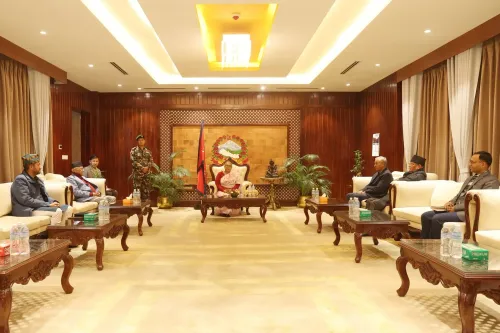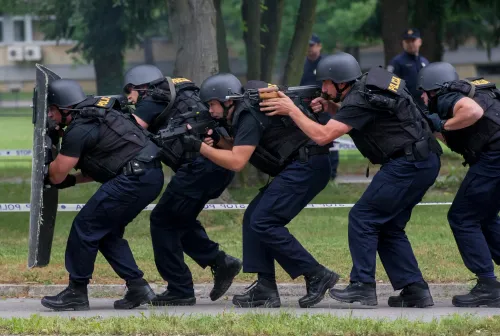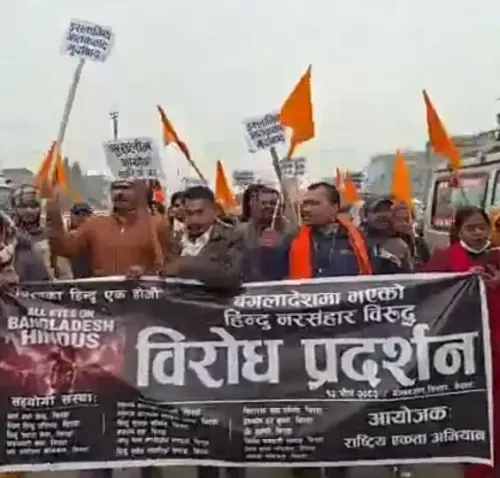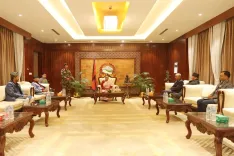What Caused the Massive Protest in Bangladesh on July Charter?
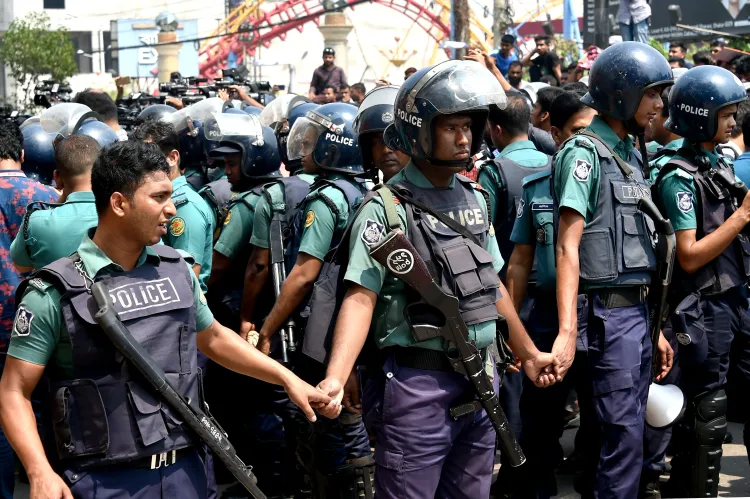
Synopsis
Key Takeaways
- A significant protest at Shahbagh disrupted traffic in Dhaka.
- Demonstrators demanded immediate implementation of the July Charter.
- The NCC is facilitating dialogue among political parties.
- Political parties are divided over the reform proposals in the July Charter.
- Political instability continues to be a pressing issue in Bangladesh.
Dhaka, July 31 (NationPress) A significant number of demonstrators in Bangladesh organized a sit-in protest at Shahbagh in the capital on Thursday, causing extensive traffic disruptions and halting vehicle movement in the area and its adjoining roads.
The demonstrators chanted slogans such as "July niye talbahana, cholbe na, cholbe na" (No more delay on July) and "July sanad dite hobe, dite hobe" (The July Charter must be declared), insisting on the immediate enforcement of the July charter.
Bangladesh’s leading newspaper, 'The Daily Star' reported Khalid Mansur, officer-in-charge of Shahbagh Police Station, stating that traffic flow in and around Shahbagh was completely halted, leading to significant congestion on surrounding roads.
Meanwhile, the National Consensus Commission (NCC) of Bangladesh is striving to finalize the second phase of discussions regarding the July Charter with political parties on Thursday.
On Thursday, NCC Vice President Ali Riaz emphasized that the primary duty for executing the July National Charter lies with political leaders.
"The fundamental responsibility of implementing the Charter rests on political leaders. We trust that those who have reached consensus on various matters can pave the way for its execution. The NCC will act as a catalyst, both formally and informally, in this effort," he remarked.
"If necessary, the commission will reconvene with all stakeholders to specifically address the implementation process," Riaz added.
He made these comments during the commencement of the 23rd day of the second round of dialogue between the NCC and political parties at the Foreign Service Academy in the capital.
Riaz highlighted that the second round of dialogue was set to conclude on Thursday, stating, "We will update you on the areas where agreements have been reached, and for unresolved matters, we hope to arrive at decisions through open discussions."
Recently, several political entities in Bangladesh, including Jamaat-e-Islami, the National Citizen Party (NCP), and Islami Andolon, expressed concerns regarding the draft of the July Charter.
These parties particularly objected to the stipulation to implement reform proposals within two years of the government formation post-national elections, urging that the July Charter be integrated into a legal framework to guarantee its execution.
During the second phase, the commission discussed 20 issues, with reports indicating no consensus on 8 reform proposals amid disagreements among major political factions.
Last month, the second phase of talks involving 30 political parties and the NCC commenced as political uncertainty and instability continued to envelop the nation.
This latest round of negotiations aimed to finalize the recommendations of various reform commissions established by the interim government under Muhammad Yunus and to draft the July Charter.
The parties that collaborated with student leaders and Yunus to overthrow the democratically elected Awami League government led by former Prime Minister Sheikh Hasina are currently at odds over significant reform proposals.


